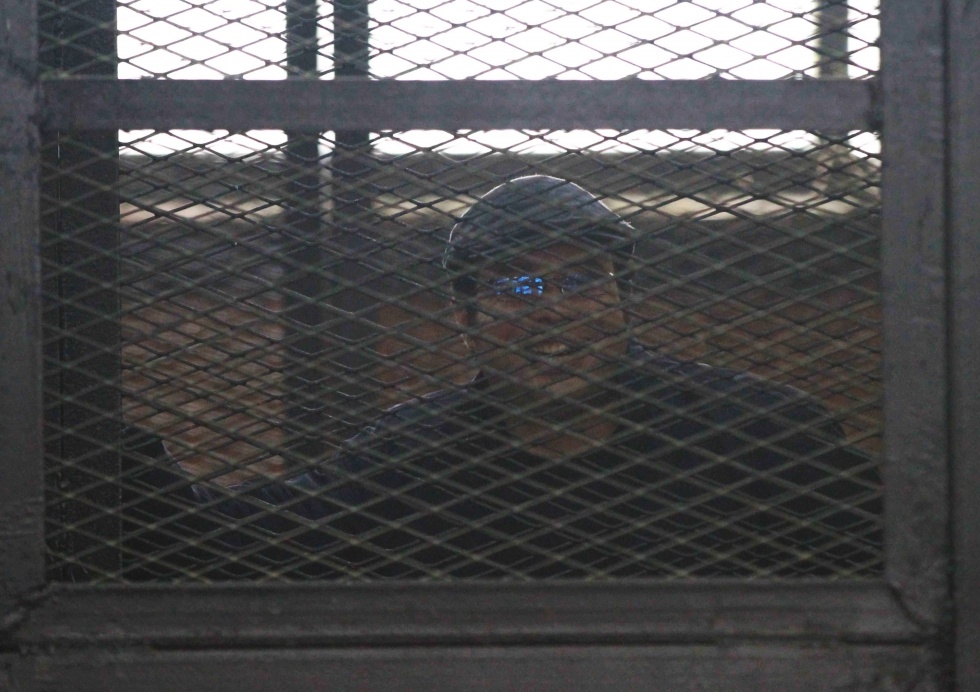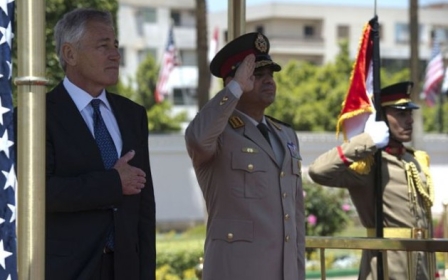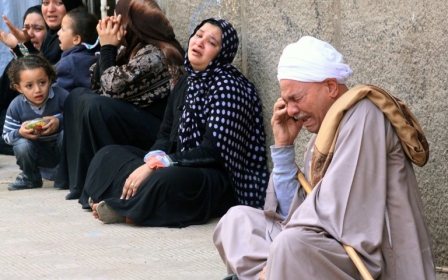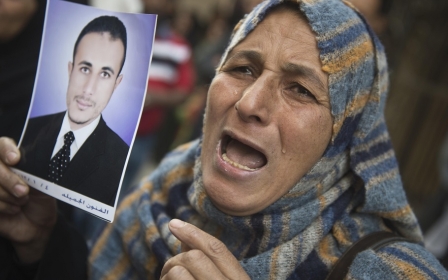Exclusive: April 6 movement tells EU to cancel observer mission

Egypt’s main secular opposition movement which spearheaded the 2011 revolution has urged the European Union to cancel its mission to observe next month’s presidential election, saying they fear even worse state backed repression will follow as a result.
The warning comes in a private letter sent to an EU ambassador from Egypt’s April 6 movement, which has been seen exclusively by the Middle East Eye.
"We truly fear that more death sentences would come and more repressive measures against 6th April and other secular movements would be put in action," April 6 said.” The minimum would be to suspend the mission for 'technical reasons'.”
"It is certain that [former army chief Abdel Fattah] Sisi will win the show whether in presence or absence of the EU elections observation mission," the letters continues. "Suspending the mission, however, would send a clear message to Mr. Sisi as well as to the European and Egyptian public opinions that the EU can hardly accept and even participate in legitimising the current practices in Egypt."
The leak of the letter will embarrass the EU, which has strong links with the secular movement and sent an official delegation in January to Torah prison where three leaders of the April 6 movement were being held. The aim of the delegation was to monitor the appeal hearing of Ahmed Maher and Mohammed Adel. Later in January, the EU pressed the matter again by sending an observatory delegate to attend a court hearing in which the trio’s final verdict was handed down, but that observer was banned.
April 6 youth movement, which was finally banned on Monday by the Egyptian Court for Urgent Matters, urged the EU to withhold any recognition of the forthcoming elections.
The letter reminded the EU of the conditions drawn up by its Foreign Affairs Council under which it would send observers. They were that Egypt’s interim authorities should ensure an environment conducive to inclusive, transparent and credible elections, and that no political groups should be excluded or banned, as long as they renounce violence and respect democratic principles.
April 6 said it was more than evident that these conditions were not being met: “In times in which more than 20,000 prisoners are detained since the military intervention/coup on July 3, political movements, Islamists and Secular are being banned, and extreme nationalistic propaganda are widely diffused through the State apparatus, it is quite evident that the conditions are hardly met.”
Launched on a Facebook page in 2008, April 6 movement was one of the country's first to organise protests through social media, gathering momentum and supporters ahead of 2011 revolution in Egypt which it helped lead.
Since November, when Egypt's interim president Adly Mansour approved a controversial law which restricts the freedom to protest, April 6 has focused on protesting against it. On 29 November, Maher was detained for demonstrating the law, and on 22 December, along with fellow April 6 leader, Mohammed Adel and another activist, Ahmed Douma, was sentenced to three years in prison and a £4,226 fine.
The EU’s High Representative Cathy Ashton has made a special point of campaigning for the secular movement.
In a statement following the December ruling, Ashton expressed "hope that these sentences could be reviewed in an appeals process."
The ban on the April 6 movement came within an hour of decisions made by a separate court in Minya which sentenced 683 people, including Muslim Brotherhood leader Mohamed Badie, to death and commuted the sentences of 492 others from death to life imprisonment. The defendants in both cases were charged with various crimes related to attacks on a police station in August 2013 in the wake of nationwide protests following President Mohammed Morsi's 3 July ouster.
All three rulings drew international condemnation.
The court decision followed an order from the African Union to Egyptian officials last week to suspend the death sentences of 529 of the accused.
In the mass trial in which most defendants were reportedly tried in abstentia, without legal representation, and in proceedings that lasted less than an hour, the Union's Commission on Human and People's Rights chairperson said it is "highly unlikely that the mass trial observed the standards of a fair trial."
Egypt is a signatory to the African Charter which has a moratorium on the death penalty.
New MEE newsletter: Jerusalem Dispatch
Sign up to get the latest insights and analysis on Israel-Palestine, alongside Turkey Unpacked and other MEE newsletters
Middle East Eye delivers independent and unrivalled coverage and analysis of the Middle East, North Africa and beyond. To learn more about republishing this content and the associated fees, please fill out this form. More about MEE can be found here.




